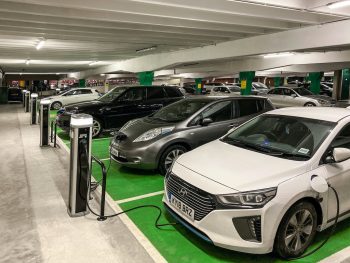Plan now for future ‘remobilisation’, fleets told
Fleets need to start thinking about how they will remobilise operations to ensure they are ready for when lockdown conditions end in the coming weeks and months.

Epyx says that while the company car will remain the “central plank of transportation” for most organisations, it is likely to be electrified and used in a more strategic manner than in the past
While expert views vary as to how quickly the current vaccination programme will be carried out and the UK can return to some semblance of normality, epyx said it’s likely we could see things change relatively quickly – potentially between spring and summer.
And this could bring something approaching the new normal’s version of business-as-usual.
Debbie Fox, commercial director, explained: “Fleets should consider how they will approach this moment as over the last nine months, very few have been operating in anything like a normal manner but we could finally begin to see a return to face-to-face meetings, for example. The new lockdown makes this possibility seem quite distant but change could happen relatively quickly.”
Despite many thinking the coronavirus has changed business life forever, Fox predicted that some ways of working would revert to more traditional methods; the benefits of which had been shown in lockdown.
“Certainly, we know from our experience that we have clients who want to be able to have in-person meetings as soon as they can be carried out safely. They desire the human aspect of the relationship they have with us. Video-conferencing has proven to be a really useful substitute but it will not replace all meetings in the future,” she outlined.
However, she said there was a consensus that the future of fleet itself may not look somewhat different.
“There seems to be a school of thought emerging that says the company car will remain the central plank of transportation for most organisations – but it is likely to be electrified and used in a more strategic manner than in the past, for journeys that are believed to be necessary. It will also be incorporated into wider mobility strategies that will aim to take advantage of new mobility options.
“The forthcoming moment of fleet remobilisation creates a natural point to assess concepts such as these and to decide whether they are appropriate for your needs – while this lockdown period could provide the space to incorporate new thinking into structured plans.”
But for now, fleets should explore how to ensure they are ready for when lockdown conditions lift. Fox said: “Fleets should be aiming to effectively manage this transition in order to create positive and defined outcomes rather than letting it happen in a haphazard manner.”
Epyx said fleet remobilisation plans could cover everything from ensuring that vehicles that had been driven infrequently over the last year were safe for more intensive use through to looking at future company transport needs in the widest strategic sense.












